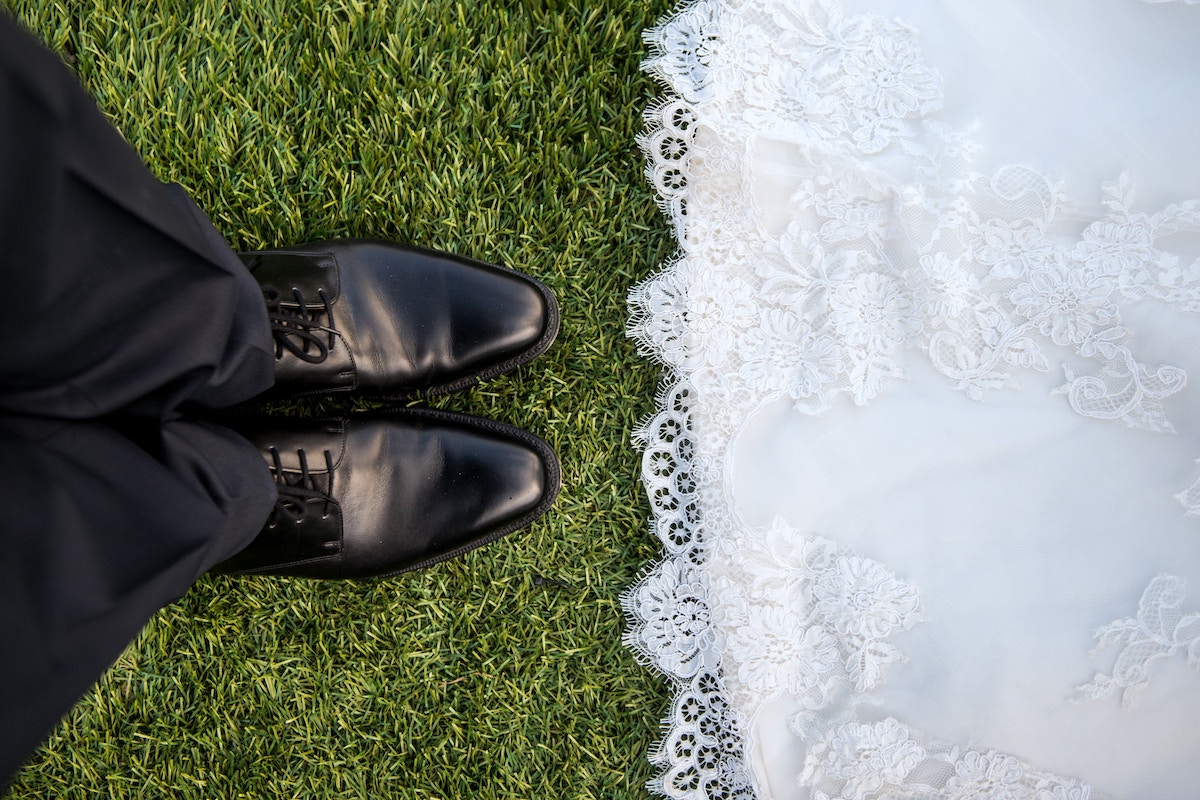Scrutiny is constant when you live in a woman’s body, and I don’t think I need to waste words convincing anyone of female experience that this is the case.
This feeling can be compounded in the Orthodox Jewish community, where I was raised and continue to situate myself. How you present your body is generally taken to signal your religious standing; even small things, like whether you keep your hair loose or whether you wear denim, can indicate which subcommunity you affiliate with. I tend to be a rule follower when it comes to dressing in accordance with expected standards, so I never felt like I was the subject of anything beyond routine inspection while growing up.
This changed when I got married.
In the past two years since I stood under the chuppah, friends — all of whom are single and male – have thought it acceptable to:
- Ask me which mikveh (Jewish ritual bath) I frequent, aloud, at my own Shabbat table.
- Ask me about the configuration of my bed.
- Notify me that some of my natural hair was peeking out from under my wig (which is not possible with the way I pin up my hair), aloud, in a room full of people.
- Mansplain various aspects of niddah (or “menstrual purity” laws), notably while assuming my menstrual status.
And, of course, there are the ubiquitous “are you pregnant yet?” and “how long are you going to wait to have a baby?” questions asked by strangers and acquaintances alike, all the time.
Since I had never experienced this onslaught of public input into my appearance or conduct, it took me by surprise that a switch seemed to flip when I got married. My general demeanor has not changed since I got married, nor has my way of dress, except for the addition of a wig or scarf on my head. Yet none of these male friends of mine ever remarked on my body before I tied the knot. Something about becoming attached to a man made my body — and particularly my physical signifiers of marriage — fair game for outsiders’ evaluations.
I am far from the first to complain about how women’s bodies are treated like they are part of the public domain. Other commentators have noted the ubiquity of getting catcalled on the street, having their pregnant (and pregnant-appearing) bellies touched without permission, and being told to lose weight by total strangers. These are just symptoms of a larger problem, however: men’s perceived entitlement of constant access to women’s bodies.
The #MeToo movement has begun to call out the powerful men who have exploited their platforms to sexually assault and harass girls and women, dismantling the societal structures and attitudes that foster men’s entitlement. Arguably the darkest manifestation of this phenomenon is the wave of mass shootings by “incels,” or so-called involuntary celibates, who lash out with violence when they feel that women are denying them their sexual due. In the wake of the recent Dayton, Ohio shooting, where shooter Connor Betts killed nine people — including his own sister — it has come to light that Betts kept a “rape list” in high school of women who had turned down his advances or otherwise slighted him.
Although the friends of mine who have made inappropriate comments are a very far cry from men like Betts and Jeffrey Epstein — and my experience with them is worlds apart from being the victim of sexual abuse or violence — they are united by their presumption that they have a right to personal knowledge of and access to women’s bodies. Considering the tragic consequences of when misogynistic views like these reach an extreme, we must not dismiss men’s prying questions as harmless, but call them out as a manifestation of the toxic masculinity it is.
The Jewish community is not immune to abuses of power; we have seen it across the spectrum, from Reform to the Orthodox and beyond. It need not be inevitable if we all strive to create a culture of genuine respect towards women and their autonomy.
The way I dress and comport my body is up to me, and me alone. It is not up for public inspection, let alone that of my male friends. It boggles my mind that this is not self-evident in 2019, and I eagerly anticipate the day when it is.
Image via Gianni Scognamiglio/Unsplash



